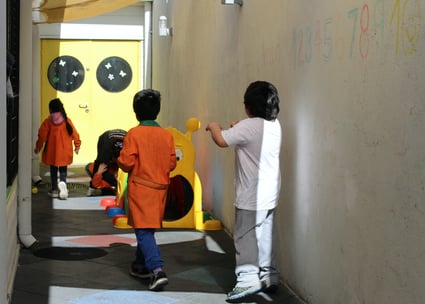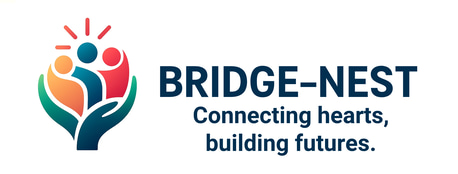Child Development: Children's Autonomy and Independence
Bridge-Nest
4/17/2025


Autonomy and Independence - are they the same?
Understanding the difference between autonomy and independence is crucial to children's holistic development. Although often used synonymously, each has different implications for the growth and maturation of young children.
The Importance of Autonomy and Independence in Child Development
Autonomy and independence are fundamental in the process of children's growth. Fostering these skills from an early age not only prepares them to face future challenges with confidence, but also promotes their active integration into society.
Strategies for Fostering Autonomy and Independence
To support the development of autonomy and independence, here are some practical strategies:
Allow Decision-Making: Giving children controlled choices over aspects such as the selection of extracurricular activities or the organisation of their free time fosters their sense of responsibility and autonomy.
Establish Flexible Routines: Implementing structured but flexible routines helps children develop self-management skills and provides them with a sense of security and predictability in their day-to-day lives.
Engage in Domestic Responsibilities: Assigning age-appropriate chores, such as cleaning their room or helping in the kitchen, teaches practical skills and encourages independence in the home.
Promote Conflict Resolution: Teaching them to solve problems and resolve conflicts independently strengthens their ability to make informed decisions and face challenges constructively.
Encourage Safe Exploration: Providing safe and supervised environments where children can explore new skills and experiences allows them to develop confidence in themselves and their abilities.
Long Term Benefits of Autonomy and Independence
The successful development of autonomy and independence during childhood brings numerous long-term benefits. Children who have learned to make informed decisions and manage their own responsibilities are better equipped to adapt to different environments and situations in their adult lives.
Implementation in the Family and Educational Context
Parents and educators play key roles in supporting children's autonomy and independence. Working collaboratively to set clear expectations and provide loving guidance promotes healthy and balanced development in all areas of children's lives.
Conclusion
In conclusion, autonomy and independence are essential elements in the holistic development of children. Fostering these skills from an early age and providing continuous opportunities to practice them strengthens their self-esteem, promotes their social development and paves the way for a successful and fulfilling future.
By implementing effective, child-centred strategies, it contributes significantly to the well-being and personal growth of each individual. Investing in children's autonomy and independence not only benefits individual children, but also enriches the community and society as a whole, creating an environment where everyone can thrive.
Implementing these strategies at home and in the educational environment not only empowers children, but also paves the way for a capable and resilient generation, ready to face tomorrow's challenges with confidence and determination.
BRIDGE-NEST
Connecting hearts, building futures.
CONTACT
+1 (407) 2028827
© 2025. All rights reserved.


Mailing Address
4855 W HILSBORO BLVD STE B3. COCONUT CREEK, FL 33073
